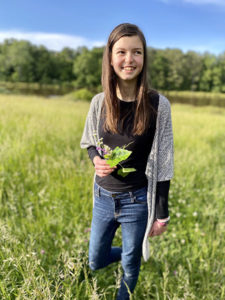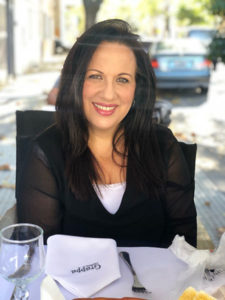Volume 1: Issue 3
By: Israel, age 14, GA

As the daughter of two missionaries, I drifted from place to place, spending a few years in Bosnia, then a few months in America. I remember coming to Atlanta on furlough and seeing old friends; people I hadn’t talked to in years. There was always an awkward exchange at the beginning. We had both changed so much that we didn’t even know who the other person was anymore. We’d each moved on and made new friends. Sometimes we’d grown apart. Other times, I’d come back to Atlanta, not even remembering who my friend was. And that got me wondering: “What is a friend?”
“Can I have a friend and not even know who she is?” Here, in America, a “friend” is pretty much anyone you hang out with; anyone you can have fun with. “Friends” come and go, and only the best ones stay with you. When I lived overseas, though, I learned to think differently. In Bosnia, a “friend” was hard to find. “Friends” were the people in your “inner circle.” You were with them all the time. You had to commit to being their friend. Their choices influenced yours. Because of that belief, I felt I had to commit to whomever I wanted to be my friend. But that was impossible. How could I be there for my friends all the time if I kept being tossed between America and Bosnia? I became confused. Which view was right? What was a “friend?” I didn’t know the answer.
So I decided I didn’t need friends. I flitted from person to person so I wouldn’t have to commit. I didn’t want to spend too much time with someone who would influence me in a negative way, so I barely spent time with them at all. I viewed many people I interacted with as “acquaintances” because I couldn’t imagine having to be there for them every day. I still felt the need for a friend, though. I felt left out when others talked about their friends or asked me: “Have you made any good friends, yet?” I remembered all the friends that had moved away from me or that I had moved away from. Everyone seemed to have a “perfect friend.” Why couldn’t I?
But all that time, I was waiting for that “perfect friend,” I forgot I already had one. And I still do. I have a friend who is so committed to me that he died for me. And he’s ready to forgive me when I’m not committed to him. I have a friend who will make me a better person, so I can help others. How could I have forgotten him? I still don’t have everything figured out; I’m not perfect, but I do know something for sure. I am called to love everyone no matter who they are. To be a good friend to everyone, even my enemies. And if I’m a citizen of Heaven, it doesn’t matter where I am, either. Now, more than ever, I need that assurance. In a time when I can’t physically go to school and make friends, I am forced to rely on the one friend who is always there. To let him into my “inner circle” and let him influence me. But, when I think about it, is that really a bad thing?
You are so right, Israel! I loved reading your thoughts because I have learned the same lesson as a missionary. God is a true friend who will never leave you nor forsake you.
I’ve learned that you don’t have to belong to a certain group or clique to fit in. God assures us that we are children of God and that He is our father. He sticks closer than a brother!
Even if there are seasons where we walk into a place alone, we are never alone. He is with us, and He always goes before us.
Another thing I have learned over the years is to pray for the friends that I need in each season. God hears our prayers and knows the desires of our hearts, and he will bring the right people into our lives at the right times. But even then, He is still the truest friend that you will ever have!
Continue being a light to those around you. I know God is watching you and He is proud!
—Maritza Hernandez, Founder/Director Children’s Impact Network, based in Florida









Wonderful words of life
This is so good and so true!! I loved it!
Israel, thank you for your thoughts on friendship. God is the ultimate Friend we must rely on for comfort and support. I also thank God that he places people in our lives to help us grow and not feel alone…:).